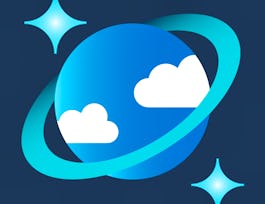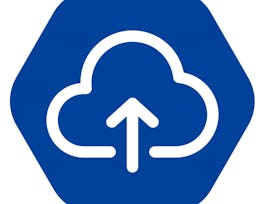In this course, you will learn the fundamentals of database concepts in a cloud environment, get basic skilling in cloud data services, and build your foundational knowledge of cloud data services within Microsoft Azure. You will explore relational data offerings, provisioning and deploying relational databases, and querying relational data through cloud data solutions with Microsoft Azure. You will learn about SQL, how it's used to query and maintain data in a database, and the different dialects that are available.

New year. Big goals. Bigger savings. Unlock a year of unlimited access to learning with Coursera Plus for $199. Save now.


Microsoft Azure SQL
This course is part of Microsoft Azure Data Fundamentals DP-900 Exam Prep Specialization

Instructor: Microsoft
19,275 already enrolled
Included with 
(232 reviews)
Recommended experience
What you'll learn
Describe the characteristics of relational data
Describe types of non-relational and NoSQL databases
Define types of non-relational data
Choose the most suitable Explore relational data workload offerings
Skills you'll gain
- Data Management
- Database Management
- Database Systems
- Database Administration
- Relational Databases
- MySQL
- Databases
- Cloud Solutions
- Microsoft Azure
- Cloud Platforms
- Cloud Infrastructure
- Database Architecture and Administration
- SQL
- Cloud Services
- Database Management Systems
- Database Theory
- Database Software
- Information Management
- Query Languages
- Database Development
Details to know

Add to your LinkedIn profile
5 quizzes, 2 assignments
See how employees at top companies are mastering in-demand skills

Build your subject-matter expertise
- Learn new concepts from industry experts
- Gain a foundational understanding of a subject or tool
- Develop job-relevant skills with hands-on projects
- Earn a shareable career certificate


Earn a career certificate
Add this credential to your LinkedIn profile, resume, or CV
Share it on social media and in your performance review

There are 2 modules in this course
In this module, you will explore Azure SQL Database, Azure Database for PostgreSQL, Azure Database for MySQL, and Azure Database for MariaDB. You will explore scenarios for using these database management systems and examine the options available when choosing a relational data platform for hosting a database in Microsoft Azure.
What's included
7 videos3 readings2 quizzes1 discussion prompt
In this module, you will learn how to provision and configure Azure SQL Database, Azure Database for PostgreSQL, and Azure Database for MySQL.
What's included
9 videos8 readings3 quizzes2 assignments1 discussion prompt1 plugin
Recommended if you're interested in Data Management

Microsoft

LearnQuest
Why people choose Coursera for their career




Learner reviews
232 reviews
- 5 stars
70.94%
- 4 stars
21.79%
- 3 stars
3.41%
- 2 stars
1.28%
- 1 star
2.56%
Showing 3 of 232
Reviewed on Apr 6, 2022
this course gives a general overview of the microsoft azule products. Simply and straightforward SQL intro instruction.
Reviewed on Jan 20, 2024
The course was good but certain information needed for the prep test were not covered in the lessons
Reviewed on Nov 1, 2021
Decent course to gain brief overview on the subject.
New to Data Management? Start here.

Open new doors with Coursera Plus
Unlimited access to 10,000+ world-class courses, hands-on projects, and job-ready certificate programs - all included in your subscription
Advance your career with an online degree
Earn a degree from world-class universities - 100% online
Join over 3,400 global companies that choose Coursera for Business
Upskill your employees to excel in the digital economy
Frequently asked questions
You should expect to spend at least an hour every week for two weeks to complete all aspects of this course.
This course is ideal for IT professionals who want to learn the fundamentals of database concepts in a cloud environment, get basic skilling in cloud data services, and build their foundational knowledge of cloud data services within Microsoft Azure with a view to taking up roles as Data Engineers and Database Administrators.
You will explore relational data offerings, provisioning and deploying relational databases, and querying relational data through cloud data solutions with Microsoft Azure.



